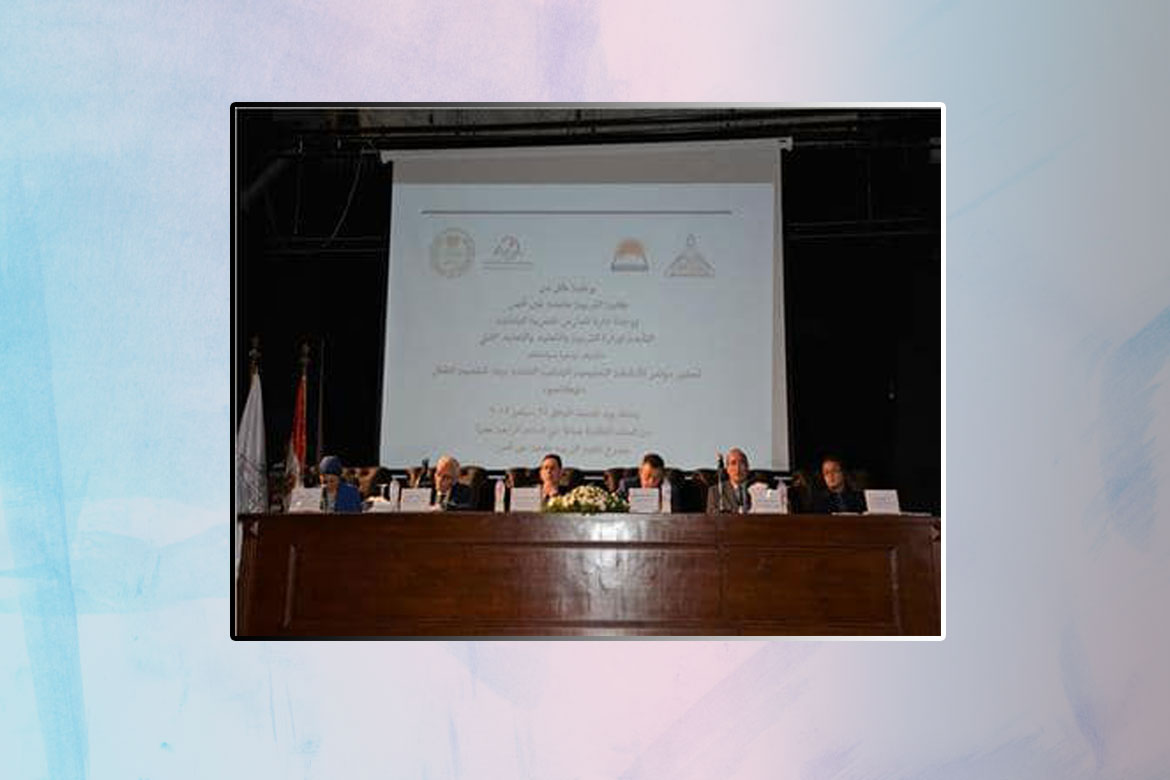The President of the University inaugurates the conference "The Impact of Japanese Education on Building the Character of Children" at the Faculty of Education
The Ministry of Education and Technical Education, represented by the Egyptian-Japanese School Administration Unit, organized a conference on “The Impact of Japanese Education on Building the Personality of Children” in cooperation with the Faculty of Education, Ain Shams University, in order to introduce the new teaching method in Japanese-Egyptian schools. For his part, Prof. Dr. Mahmoud El-Metini, President of Ain Shams University, stressed the need for cooperation between the faculties of education in order to train teachers and establish the principle of Tokatsu, explaining that building the character of the child is the real plant to create a generation to keep pace with the labor market and brainstorming and digital and speed of technological development. He also stressed on continuing to train teachers in parallel with parents, in order to serve the student and get the fruit is valid for creativity, excellence and self-fulfillment.
For his part, Dr. Reda Hegazy, head of the public education sector expressed his happiness to participate in this conference, saying: "If education is life, education activities must be from life or simulation so that the learner to come out to develop life and develop itself, it may achieve the activity of learning outcomes that a full course cannot be achieved.
Dr. Reza stressed the importance of active learning where it yields a student thinker, creative, thinks about what he learns, and enjoys what he learns, to be employed and creativity in the practical application of the labor market, pointing out that this era is an investment to use the values of values and solve problems, stressing the importance of the role Played by Japanese schools, and attention to all the skills of students, whether academic or non-academic, it is a distinct experience with international standards where the new Egyptian curriculum is taught in Arabic, in addition to the activities of the Japanese Tokatsu, which aims to build an integrated personality of the student; Positive behavior, skills and habits.
For her part, Neven Hamouda, Advisor to the Minister for Strategic Relations and Supervisor of the Japanese Unity Project, said that the Japanese education system seeks to achieve the comprehensive development of the child, and provide students with a range of skills through the provision of a comprehensive education system based on development and learning based on play, pointing out that one of the project's success indicators is that children are happy to come to school every day.
Dr. Maged Abu El Enein, Dean of the Faculty of Education, Ain Shams University, praised the Japanese schools in Egypt, describing them as a great edifice that aims at developing the child's personality and making it an innovative personality. He also talked about the role of the teacher and trained him on the proper program to build the child's personality represented in his behavior, skills, values and attitudes, pointing out that the word Tokatsu refers to the overall development of the child.
Mr. Omura, Senior Representative of the International Cooperation Authority, Cairo Office (JICA), talked about the role of Japanese schools and Tokatsu activities. He said that the goal is not only knowledge and skills, but thinking and the ability to deal with them to find solutions to problems and this is achieved through the joint cooperation between Japan and the Center for Curriculum Development of the Ministry of Education and Technical Education for self-development and innovation. He pointed out that the application of "Tokatsu" activities aimed at self-development, and improve the quality of education in Egypt, stressing that the kindergarten stage follows the comprehensive development, and the launch of a new system of productive education.
On the sidelines of the conference, the participants inspected an exhibition of the activities of the Egyptian Japanese school students through the Tokatsu Project's study axes, which came through learning through coexistence and research classes, sharing opinions and listening to the other opinion, learning through play and life skills. Their artworks included clay works, some agricultural products, and innovative works.


.svg)

